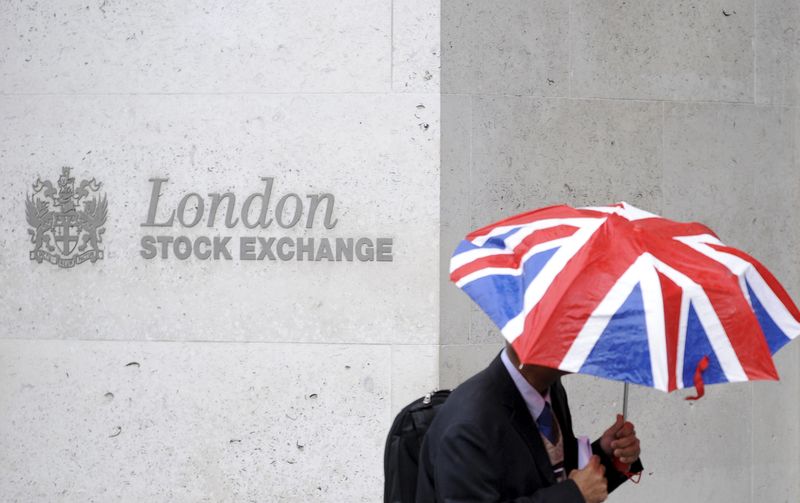Investing.com - Here are the top five things you need to know in financial markets on Friday, March 22:
1. U.K. granted short extension to avoid no-deal Brexit
The tension over the U.K.’s upcoming departure from the European Union lifted ever so slightly as European leaders moved to stop a chaotic no-deal Brexit from happening next week.
The EU has agreed to extend the current March 29 deadline to as far as May 22 if the British parliament approves the withdrawal deal next week.
In a worst-case scenario, where U.K. politicians reject the deal for a third time, EU leaders will still allow a 2-week extension to April 12.
Read more: May Still Needs A Miracle Despite Brief Brexit Extension - Geoffrey Smith
2. Global stocks mostly lower as economic woes weigh
A wave of risk-off sentiment swept through markets after signs of a further economic deterioration in Europe. while caution reigned ahead of high-level U.S.-China trade talks scheduled for next week.
U.S. futures pointed to a lower open as economic worries dampened Thursday’s tech-inspired rally. At 5:57 AM ET (9:57 GMT), the blue-chip Dow futures fell 124 points, or 0.5%, S&P 500 futures dropped 12 points, or 0.4%, while the Nasdaq 100 futures traded down 25 points, or 0.3%.
Weak readings of Eurozone business growth on Friday added to the downbeat outlook, sending European bourses lower. The pan-European Euro Stoxx 50 fell 0.7% by 5:56 AM ET (9:56 GMT).
The news comes hot on the heels of the Federal Reserve's move to take further rate hikes out of its projections for 2019, in a marked about-face from its prior forecast for two increases this year.
3. Eurozone economy hit by manufacturing downturn
The Eurozone economy ended the first quarter on a soft note as its flash purchasing managers’ index (PMI) ran at one of the lowest levels since 2014, pointing to meager first quarter growth of just 0.2%, according to a survey released Friday by IHS Markit.
The bloc's largest economies, Germany and France, both saw contractions in the manufacturing sectors.
“Most worrying is the plight of the manufacturing sector, which is now in its deepest downturn since 2013 as trade flows contracted at the sharpest rate since the debt crisis- ridden days of 2012,” said Chris Williamson, chief business economist at IHS Markit.
4. Bond yields worldwide tumble to new lows
As central banks shift to a more accommodative stance, global bond yields are dropping to multi-year lows.
Japan’s 10-year benchmark yield hit its lowest level since 2016, while the yield on the safe-haven 10-year German Bund fell briefly below 0% for the first time since the autumn of 2016. New Zealand’s comparative fell below 2% for the first time, while Australia’s equivalent was just three basis points away from a record low.
The yield on U.S. 10-year Treasuries declined on Friday, tumbling around 4 basis points to below 2.50%, its lowest level since January 2018.
John Lonski, chief economist at Moody’s Capital Markets Research, ventured that the Federal Reserve will cut interest rates if the 10-year Treasury yield drops below 2.4%. If job creation doesn't pick up from February's levels, "a lowering of fed funds midpoint to 2.125% could occur as early as the June 19 meeting of the FOMC,” he said..
5. Nike sinks 4% on disappointing North America sales
Shares in Nike (NYSE:NKE) sank more than 4% in pre-market trade on Friday after the world’s largest sportswear maker reported quarterly sales in North America, its largest market, that missed expectations.
North America sales rose 7% to $3.81 billion in the third quarter, falling short of estimates of $3.87 billion, according to IBES data from Refinitiv.
Nike’s guidance was also a source of concern as it forecast low single-digit revenue growth for the current quarter, while analysts had estimated a 6.1% advance.
